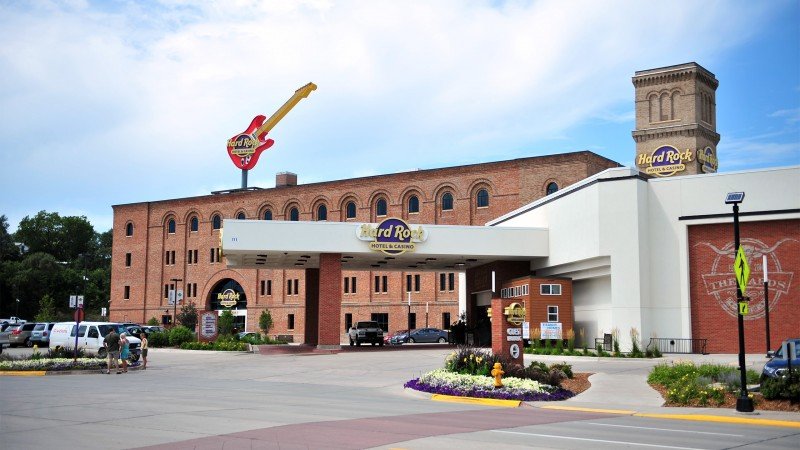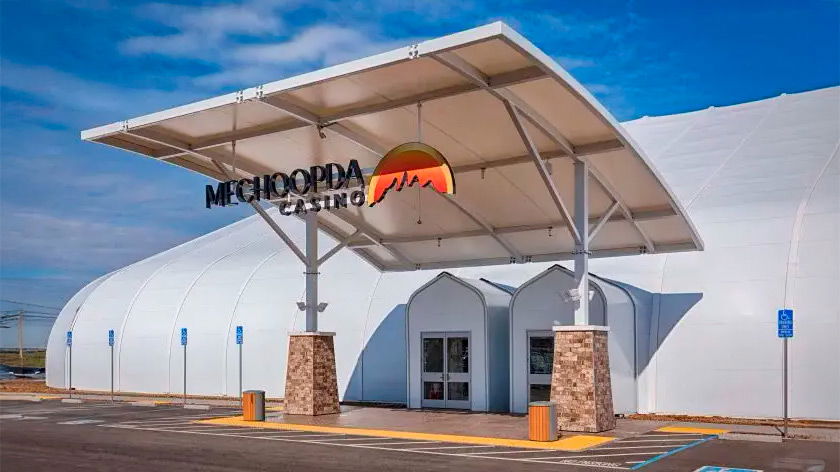Western Iowa casinos to lose revenue from Nebraska's upcoming casino industry, report finds

As Nebraska moves forward with plans to construct casinos along Iowa’s western border, the increased competition is expected to lead to a significant loss in revenue for Iowa’s gaming industry, according to a socio-economic analysis by the Spectrum Gaming Group.
The study predicts major losses in revenue for the state by 2025, reports Iowa Public Radio. The report anticipates casinos in Council Bluffs and Sioux City will face stiff competition from venues being constructed across the border in Omaha and South Sioux City.
Spectrum Gaming Group finds Council Bluffs casinos as the most at-risk, given 80% of their gaming revenue comes from Nebraska residents. The study claims Iowa city’s three casinos could lose 45% of their market to competition by mid-decade.
While Brian Ohorilko, director of gaming at the Iowa Racing and Gaming Commission, said he was not surprised at the projected losses, he did admit the numbers were higher than those operators anticipated a year ago.
“The Council Bluffs market is the largest market in the state and so there will be a significant impact,” Ohorilko said, according to the previously cited news source. “The Iowa casinos will need to prepare for and do everything they can to put their best foot forward.”
Among the casinos slated to lose revenue to competition is Sioux City’s Hard Rock Casino. Even though the venue could retain about 60% of its market, the report estimates a loss of around $35 million within three years after the Nebraska casino opens in South Sioux City.
The Iowa Racing and Gaming Commission has also commissioned a second study on the potential impact on the market for a new casino in Cedar Rapids, for which it will hear presentations at a meeting next week. The information will help the IRGC determine if there should be a casino after a license was denied in their last attempt.
The study seeks to answer what would be the projected impact of new casino licenses in the state, how much has the situation changed since 2017, and what would the projected new revenue be for a proposed facility.
One of two studies shows that a Cedar Rapids casino would take revenue from Waterloo, Dubuque and Riverside, while the other report projects loss to existing casinos of 61 million dollars. A full review of the studies is expected at next week's meeting.
Increased competition from Nebraska could present a major blow to Iowa, a state with a gaming industry that saw record-setting highs in 2021. Iowa casinos generated over $1.5 billion dollars in revenue last fiscal year, reporting about $330 million in state and county taxes.
But it would not only be the industry the one set for a major hit, but also the state. According to Ernie Goss, a professor of economics at Creighton University cited by Iowa Public Radio, the cannibalization of Iowa casinos’ revenue will also greatly impact the state’s tax collections in the years to come.
“You're going to see revenues pull from Iowa residents,” Goss said. “And that's money that would have been in the state of Iowa and tax collections that would have been collected in Iowa, that now will be going to Nebraska.” The diminished tax collections could impact the funding of public libraries and schools, he further explained.
Residents in Nebraska voted last year to legalize casino gambling at the state’s horse tracks, and operations could launch as early as 2023. In late December, the Nebraska Racing and Gaming Commission unanimously voted to approve rules for the casino industry.
The rules call for an initial casino licensing fee of $1 million for a 20-year license. They are also set to foster “ethical” gaming operations, according to Sean Boyd, president of Global Gaming Nebraska, a subsidiary of the Chickasaw Nation of Oklahoma.
So far, all six existing tracks have publicly announced plans to seek casinos. The latest to do so was Hastings Exposition and Racing, which is proposing a new facility on 160 acres just north of the city near Lochland Country Club.

















































